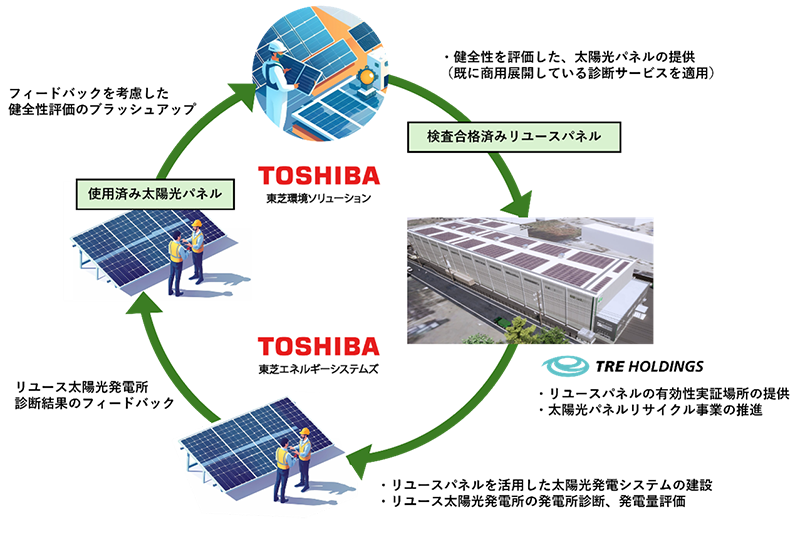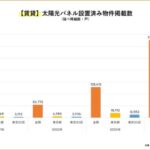TRE Holdings Corporation (“TRE”), through its consolidated subsidiary Rever Corporation (“Rever”), Toshiba Energy Systems & Solutions Corporation (“Toshiba ESS”), and Toshiba Environmental Solutions Corporation (“TESC”) have partnered to jointly conduct a demonstration project evaluating the effectiveness of reused solar panels. The project will involve installing a self-consumption solar power system using used solar panels at Rever’s Mibu facility (tentative facility name) in Mibu Town, Shimotsuga District, Tochigi Prefecture, which is scheduled to open in August 2025.
In this demonstration project— the first such project for the three companies—a combination of new (approximately 178 kW) and reused (approximately 156 kW) solar panels will be installed on the rooftop of Rever’s Mibu facility. TESC will evaluate the operational health of the reused panels, which will be operated under the same conditions as the new ones. Toshiba ESS will monitor power generation data to assess their safety and efficiency. Through this process, the project aims to verify the effectiveness of reused panels.

Roles of Each Company in This Demonstration Project
| TRE | Provide the demonstration site to assess the effectiveness of reused panels Promote solar panel recycling initiatives |
| Toshiba ESS | Construct a solar power system using reused panels Evaluate the performance of the reused solar power plant and its power generation |
| TESC | Supply solar panels that have undergone operational health assessments through its commercial diagnostic services |
TRE specializes in solar panel recycling, Toshiba ESS is engaged in the development, construction, maintenance, and operation of solar power plants, and TESC provides diagnostic services to assess the operational health of solar panels.
EnerScale Insight
While prioritizing the reuse of decommissioned solar panels over recycling aligns with circular economy principles, effectively assessing their operational health and evaluating their viability for reuse remain industry challenges. Demonstration projects like this can provide a pathway for rigorous evaluation and, ultimately, the broader adoption of reused panels.

